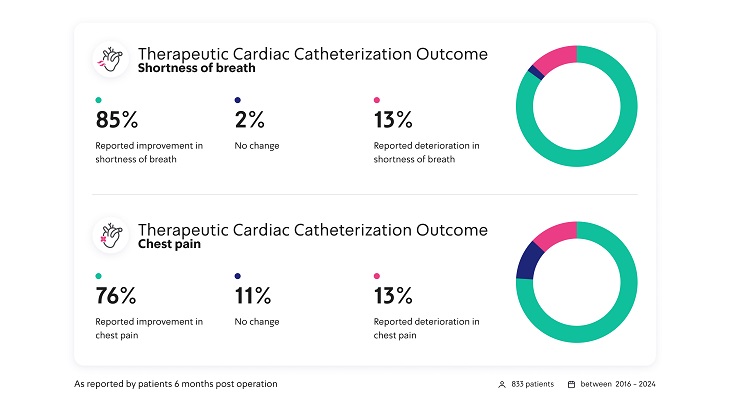Cardiac Catheterization Outcomes, PROM's
Heart attacks (MI) are among the leading causes of death and morbidity in Israel and the western world.
Treatment of heart attacks has greatly improved over the last two decades, evident in our understanding of the need for early catheterization and improved drug quality.
The Sheba Cardiovascular and Thoracic Institute is among the largest and best-known cardiac centers in the world. Every year, we treat hundreds of patients who are admitted following a cardiac incident. Our experience taught us that improved care reduced the risk of a recurrent MI, arrhythmia, severe cardiac impairment and congestive heart failure.
On the other hand, very little is known about quality of life and improved symptoms after the treatment. The PROM project, among the most advanced in the world, is intended to assess post MI patient symptoms in order to optimize their treatment.
The project compiled data from over 833 patients who were admitted to Sheba due to a heart attack and who underwent a therapeutic catheterization. The patients completed a questionnaire related to shortness of breath and chest pain during their hospital stay and afterwards – 30, 90, 180 days and one year after their hospitalization.
As the graph shows, 76% of the patients who suffered from shortness of breath during or before the MI – did not suffer from the symptoms one year post catheterization. 84% of the patients who suffered from angina pectoris before or during the MI, were rid of it one year after the procedure.
These findings are important, not only because of the improvement in patient quality of life, but also because shortness of breath and pectoris angina are clinical warning signs of damage to the cardiac muscle and/or the existence of a persistent or recurrent stenosis of the cardiac arteries.
Results based on data from 2016-2024:









